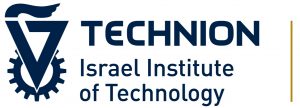Program objectives
The curriculum integrates advanced knowledge of planning and current research knowledge with the aim of training professional architects who will legally register with the Registry of Engineers and Architects in Israel.
The program aims to provide the broad theoretical and practical expertise required to understand, analyze and address a wide range of planning problems and develop creative skills.
- Physical planning – architecture of structures, urban design, green architecture, conservation and restoration of buildings, interior design and furnishing, product design, landscape architecture and natural resources
- Introductory courses in planning and design – basic design, human-environment relations, climate and energy, computer-aided design and digital architecture, morphology of structures, and the economic, social and psychological aspects of design
- Building technology – construction details, construction materials, structural systems, industrial building systems, spatial structures, building products and accessories, building service systems, environmental and climate control technology
- Theory, history and critique of architecture and urban planning – history of architecture from ancient times to the modern era, modern architectural theories and movements, history of architecture in Israel in the 20th and 21st centuries, theory and critique of architecture and urban design in Israel and worldwide
The major courses of study are as follows:
Graduates are awarded a Master of Architecture and Urbanism (M.Arch.1), which allows them to become registered architects in Israel.
After completing four years of study in this program, students earn a Bachelor of Science in Architectural Sciences (B.Sc.).
The program commences in the fall semester only.
Curriculum
The professional master’s degree program is 12 semesters, during which students earn 240 credits.
The basic structure of the curriculum is as follows:
- Core studies (years 1 and 2)
- Discipline studies (years 3 and 4)
- Professional studies and capstone project (years 5 and 6)
After completing four years of study and earning 160 credits, students will be awarded a Bachelor’s of Science in Architectural Sciences (B.Sc.), which is a theoretical (non-professional) degree, as a milestone towards completing the professional degree in the fifth and sixth years. Earning a bachelor’s degree allows students to transfer to one of the other non-professional master’s programs (Master of Science in Architecture, Urban and Regional Planning, Landscape Architecture or Industrial Design) or continue towards a master’s degree at another institution.
Continuing to the fifth year is conditioned on completing six design projects, including a project in urban design, as well as the required core classes and electives of the first four years. Students who complete the requirements of the bachelor’s degree (B.Sc.) with an average of 80 or higher may enroll in the master’s degree.
As part of the master’s degree, students can earn a certificate in one of five specializations: Green Architecture, History and Theory, Technology, Urban Design, and Conservation of Buildings and Sites.
Admissions requirements
A total score is calculated for each candidate, based on three factors:
- Psychometric test score or ACT/SAT score
- Grade point average from the Israeli Bagrut certificate, Technion Prep program or equivalent exams from abroad
- Score on the Architecture Screening Test, whose goal is to reflect students’ creativity and assess their observational and analytical skills, spatial thinking and verbal and graphic expression
This calculator (Hebrew) can be used to calculate students’ admissions prospects.
Candidates who have already earned a B.Sc. degree with excellence in Architectural Sciences or Architectural Design can apply for direct admission to the master’s program (year 5). Enrollment may be stipulated on completing up to 40 credits of required courses that were not included in their bachelor’s degree. If a student is missing more than 40 credits, they will not be considered for direct admission to the master’s program.
Application
To apply, click here (Hebrew).
Contact
Talia Madjar, Undergraduate Studies Coordinator, Room 311, Amado Building, 04-8294006, arcstud@technion.ac.il

